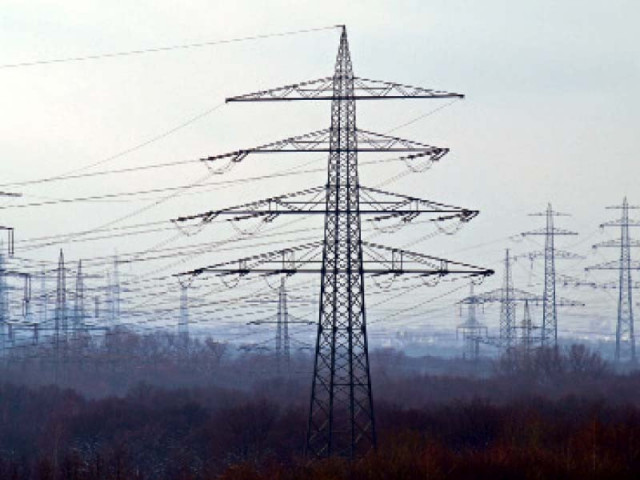NEPRA takes notice of power outages
Energy minister says shortfall due to maintenance work at Tarbela

The national power regulator has swung into action after tempers began to fray nationwide over prolonged power outages in scorching temperatures despite government claims of having surplus electricity.
In the past, the country’s chronic power crisis frequently triggered protests – sometime with violent consequences – in summers, but the incumbent government claims to have overcome the shortages by setting up several power projects under the China-Pakistan Economic Corridor (CPEC).
The energy minister attributed the load-shedding to a technical issue at a major hydroelectric power plant and outages at a few thermal power plants. However, he added that the outages didn’t mean the country doesn’t have surplus electricity.
The National Electric Power Regulatory Authority (Nepra), meanwhile, summoned the chief executive officers (CEOs) of all power distribution companies as well as of K-Electric on Friday to justify the reasons for hours-long outages and to highlight the “remedial measures to eliminate prolonged load-shedding”.
Read: NEPRA cuts tariff by Rs0.43 per unit
In a statement, Nepra emphasized that all power distribution companies including K-Electric – the power distribution company that supplies electricity to Karachi – are obligated under the relevant provisions of their licences to provide uninterrupted and reliable power supply to their consumers.
The government claims that Pakistan has surplus power after execution of several power projects under CPEC. However, all claims about overcoming load-shedding are exposed every summer when consumers’ demand increases.
According to experts, the demand for electricity is much higher compared to the projections of the government. The power companies resort to load-shedding in those areas where they suffer high losses.
If these companies supply electricity to all consumers on an equitable basis without following the “pay bills and get electricity” formula, the overall power demand will be much higher. According to the Power Division, the demand of electricity is 24,100MW against electricity generation of 22,600MW.
However, Federal Minister for Energy Hammad Azhar said there is an average power shortfall of 1,000MW for the past 48 hours due to rehabilitation work on a major hydroelectric power plant and outages in a few thermal power plants.
“Tarbela will be back online in four to six days (3,000MW) and efforts have been made to add 1,100MW from alternative plants by tonight to plug shortfall,” the minister said in a social media post. In a separate video statement, he also explained why the country is facing load-shedding during the last 48 hours.
He said one of the reasons of the load-shedding is that the Water and Power Development Authority (Wapda) is doing routine maintenance of the Tarbela dam that will be completed in the next two to three days. “About 3,000MW electricity will be back in the next couple of days.”
He emphasized that load-shedding does not mean the country does not have surplus electricity. He added that country had surplus electricity that would be available for the entire year.
Officials said the government has increased supply of gas to Kot Addu Power Company (Kapco) to add 450MW electricity in the system. They said the intensity of load-shedding had been reduced and the situation would be normalized by tomorrow.
Furnace oil crisis
Meanwhile, oil refineries have warned of suspending the supply of petroleum products, complaining that oil marketing companies (OMCs) are not taking furnace oil supplies because the power plants are reluctant to consume the expensive fuel for electricity generation.
Furnace oil – a deregulated petroleum product – has been mainly used for power generation in the country. It is also consumed by the industrial sector, but only in meagre quantities.
Owing to the shift to cost-effective and environment-friendly fuels, such as liquefied natural gas (LNG), in power generation, the furnace oil consumption has gone down drastically. The Cabinet Committee on Energy, in December 2018, also imposed a ban on the import of furnace oil for power generation.
Domestic refineries have the capacity to produce around 250,000 tons of furnace oil per month to cater to high electricity demand across the country during hot weather and to avoid imports.
The Petroleum Division has issued instructions to the OMCs that the petroleum products produced by domestic refineries should be given priority over fuel imports.
The division monitors the demand for furnace oil, available stocks at power plants, the OMCs and refineries and allows imports only to bridge the deficit.
On April 2, 2021, the Power Division put furnace oil demand at around 2.7 million tons for April to October 2021 period. Later on April 14, it enhanced the demand to 3 million tons for the same period.
Subsequently, a meeting was held in which the power secretary categorically stated that furnace oil stocks would not be used for power generation rather they would be consumed in emergency situation.
Read more: NEPRA revises tariff for K-Electric during Jul-Dec 2020
It decided that the Power Division and the National Transmission and Despatch Company (NTDC) would check the LNG supply for the period and furnace oil demand of the power plants would be conveyed to the Petroleum Division so that Pakistan State Oil (PSO) could be directed to arrange supplies.
Owing to the low furnace oil consumption by power plants, the PSO, Pak Arab Refinery Limited (Parco) and Attock Refinery took up the matter with the Petroleum Division for immediate resolution.
Any delay could cause a reduction in the operating capacity of refineries or in the worst case scenario the refineries might be shut down, they said. Consequently, the supply chain of petroleum products for domestic consumption may be impacted.
In a letter on May 26, the Petroleum Division requested the Power Division to lift furnace oil from the stocks of the OMCs in order to ensure a smooth operation of refineries and oil and gas fields.



















COMMENTS
Comments are moderated and generally will be posted if they are on-topic and not abusive.
For more information, please see our Comments FAQ